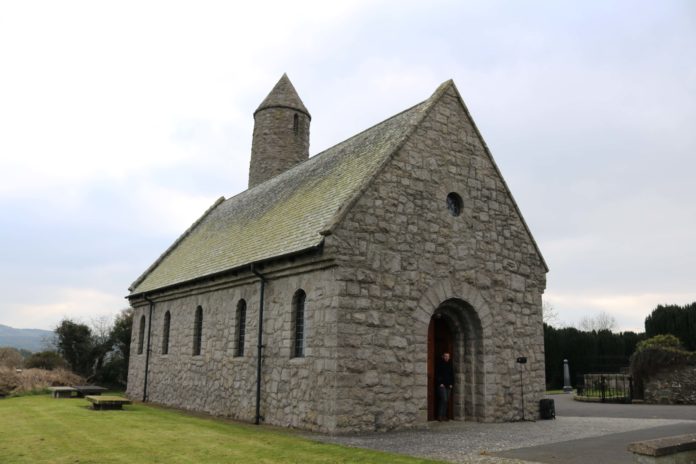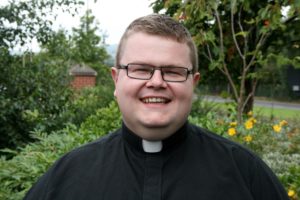
Rome (NEV), March 9, 2017 – After second March election, Sinn Féin – the catholic republican party of Northern Ireland – has almost become the first party, gaining the 28.9% of the vote. An historical outcome: one year ago the Democratic Unionist Party had obtained 8 seats more than Sinn Féin, in the new Parliament “protestants” has just 2 seats more than “catholics”. How did this happen? The answer blows in Brexit scenario. Even if the 56% of Northern Ireland citizens voted to remain in Europe, the membership in United Kingdom will bring the country outside the EU, resurrecting a physical and symbolic frontier between an “European Catholic” Ireland and a “British and Protestant” one.
About these crucial issues, we have interviewed Revd Adrian Dorrian, Chairman of the Church of Ireland’s Church and Society Commission. Mr Dorrian is Associate Minister and Director of Children’s and Youth Ministry with the Lecale Area Mission Partnership, which is part of the Diocese of Down and Dromore (Lecale is the area around Downpatrick, where St Patrick’s grave is found and where there is Saul, believed to be the site of his first Church in Ireland). The Church of Ireland has around 378,000 members: 249,000 in Northern Ireland, where it is the second protestant denomination, and 129,000 in the Republic of Ireland.
As a Christian, are you worried about new possible conflicts in Northern Ireland? Is 1998 peace really in danger?

I don’t think any Christians in Northern Ireland, or anyone else for that matter, would want to see a return to the violence of ‘The Troubles’. The 1998 Agreement laid down terms of reference for moving forward in Northern Ireland, but it’s really important to note that in terms of violence, the main Paramilitary groups had called ceasefires much earlier in the 90s. While I’m concerned that powersharing arrangements aren’t working at the moment, I don’t believe anyone – least of all the political leaders – would desire a return to the worst of the days of violence.
In Brexit context, Irish and British politicians may come back to use religion to achieve their goals. In your opinion, has been already happening?
Religion and politics have always been closely linked in Northern Ireland. Proportionally, the country still has a high number of people claiming a faith, and many of those who might not practise faith still have an identity rooted in religious background. I don’t believe this has to be a danger. The Church has much to say in the public square and this is an important part of the wider civic discourse. Some politicians are known to have active faith, and this shouldn’t be seen as a vice. However, faith shouldn’t be a campaign technique, any more than dismissing opinions informed by faith should be.
In this difficult moment, all the Irish churches (Presbyterian, Anglican, Catholics) are united in asking peace and a better political debate. Let’s imagine that, as requested by McGuinnes and other Sinn Féin leaders, a political referendum in order to remain united in the EU was obtained for the whole Island; Different Churches and Irish denominations would not take different positions? Do you ecumenically talk each other about this scenario?
I don’t foresee a referendum on Irish unity framed in the EU context, although any border poll would inevitably include the EU as part of the wider discourse. The Church of Ireland position is that individuals have a right (and indeed responsibility) to exercise their franchise at the ballot box. How they choose to do so is a matter for their own conscience. That would be no different in a referendum on Irish unity. With its roots in the Church of England, but its unique role in the history and heritage of Ireland, the Church of Ireland has much to offer both British and Irish Society. I believe this is the case with the other denominations in Ireland as well.
On the other hand, if nothing changes, the border between Dublin and Belfast will become an external border of EU. How do you feel about that? It may be a religious question too, because borders may hinder even the unity of Christian (and Anglican) community.
This is not a religious question, but that is not to say the question of a border won’t have practical implications for churches. But they will be practical – will I have to take my passport for meetings in Dublin, for example? I can remember police checkpoints on the border during the troubles and such checkpoints operated by providing security but also by allowing their agents to exercise discretion and discernment. I find it hard to conceive a situation where the border couldn’t be at least somewhat permeable, if not non-existent. Nonetheless, there will be implications for cross border meetings, and indeed cros sborder parishes and Dioceses. However, the reason this is not a religious question is simple. The border will not change the mission of the body of Christ – whether in the Church of Ireland or in other denominations. I can think of several other Anglican provinces and Diocese that span several countries, and cover exponentially more land than the Church of Ireland. I have friends and associates in South Sudan and Egypt who, in their work as bishops, have to cross borders. It is not straightforward, but they manage and their mission remains unchanged.
From your point of view, what is the main reason of the present political and cultural crisis in Northern Ireland?
I think the biggest issue at the moment is lack of trust. For generations, the different sides of the political spectrum have been at odds with each other. Powersharing in its current form has only been in operation for 10 years – a very small amount of time in the larger scheme of things. I think politicians, and the wider population at large, is still trying to learn what it means to trust those from across the political divide – people who had been seen for many more decades as ‘the enemy’. All worthwhile relationships are fraught, and while I don’t wish to make light of the current issues or trivialise them in any way, the sign of a truly strong relationship is not a lack of conflict but the ability to deal well with conflict. I believe reconciliation will come and there will be a resolution to the current issues. When that happens, we will have a stronger civic society as a result.




























